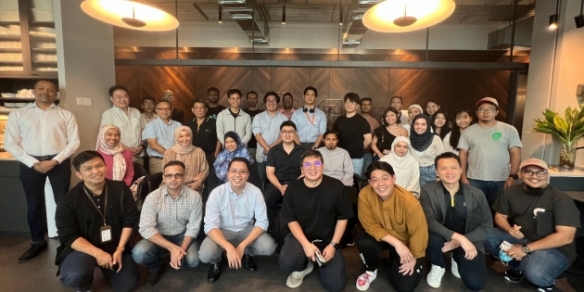Consumers worry that privacy invasions may lead to a loss of civil rights: EIU survey
By Digital News Asia April 11, 2018
- Fifty-seven percent say the “right to be forgotten” is among the most important consumer rights
- Ninety-two percent want to increase punishments for companies that violate consumers’ privacy

WHAT the Internet of Things means for consumer privacy, sponsored by ForgeRock, is an EIU research programme that explores the concerns and priorities of global consumers stemming from the Internet of Things (IoT). It is based on a survey of 1,629 consumers from eight countries around the world.
Though companies around the world are scrambling to comply, consumers globally want the types of data privacy rights included in the EU’s General Data Protection Regulation (GDPR), which will take effect in May 2018. Of these, 57% of the consumers surveyed report the right to erase their information (“the right to be forgotten”) as most important—this is the most often cited response.
The data and complementary interviews suggest a few strategies that will help companies build consumer trust. These include collaboration with governments to uphold privacy standards and industry-led commitments to maintain customer privacy. Rigorous government enforcement of standards is key, and 92% of consumers surveyed call for increasing punishments for companies that violate privacy norms.
Veronica Lara, editor of the report, says: “Consumers have cause for concern, as the ubiquity of interconnected sensors through the IoT adds layers of risk that people can’t easily understand. Companies’ lack of transparency and the absence of consumer control over data exacerbate perceptions of privacy and security threats. This looks to change, however, as consumers demand stronger safeguards and as the influence of GDPR spreads beyond the EU.”
Large shares of the consumers surveyed indicate a host of concerns related to the collection and transmission of their personal information. These range from identity theft to the creation of consumer behaviour profiles, and 74% worry that small privacy invasions may eventually lead to a loss of civil rights.
With regard to the automatic collection of data, 92% say they want control over what information is gathered, and a similar share wants to be informed at the point of sale of the data collection capabilities of devices.
View the study here: What the Internet of Things means for consumer privacy
Related Stories:
Singapore and Malaysia ahead in cyber-security, but concerns remain
GDPR: Privacy and security ‘by design’
How GDPR can empower travel, transport & hospitality firms


